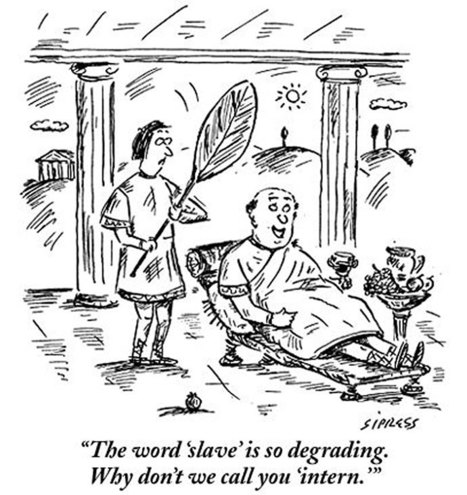The Cambridge classicist Mary Beard weighs in on the ancient art of joking....
Dear Laughter Lovers,
Have you ever wondered why I always start my newsletter with that salutation? Well, wonder no more. It’s because “laughter lover” is the English translation of philogelos, the Greek word that serves as the title of the world’s oldest joke book.
In last week’s magazine, there was a fascinating Profile by Rebecca Mead of the noted Cambridge classicist Mary Beard. What especially interested me was the mention of Beard’s most recent book, “Laughter in Ancient Rome: On Joking, Tickling, and Cracking Up,” which is published by University of California Press. (She is incredibly prolific, so by the time you read this she may have an even more recent book.)
Coincidentally, I had just finished reading this title, which I found to be as enjoyable as it was erudite. It includes a chapter on the Philogelos. I contacted Professor Beard to see whether she would write a bit about it. Being the agreeable sort that she is, she said yes. Take it away, Mary.
A few years ago, the English standup comic Jim Bowen presented a show with jokes that were based entirely on the one surviving ancient joke book, the Philogelos. It’s a collection of some two hundred and sixty short gags, written in Greek; it probably dates, in the form we have it, to the fifth century A.D., but some of the jokes go back centuries earlier.
I particularly like the one about the thuggish, philistine Roman who destroyed Corinth in 146 B.C. When he was overseeing the transport of the precious antiques that he had looted from the city, he said to the ships’ captains: “Don’t break anything, or you’ll have to replace it.”
Bowen’s show was apparently successful, or, at least, it was widely reported as such in the U.K. press, which at first sight was a bit worrying for those of us who think of laughter as much more a cultural than a natural human response. By and large, the rules of laughter (at what, when, when not, et cetera) are something we learn—we’re not born with them. So how come people still laugh at the jokes in the Philogelos almost two thousand years later, in a completely different culture, one whose rules of laughter we ought not necessarily to intuit? I have various explanations for that, none of which involve abandoning my basic position on the cultural aspect of laughter and joking....



 Your new post is loading...
Your new post is loading...









Francoise Mouly speaks to the artist John W. Tomac about “Liberty’s Flameout,” his Statue of Liberty-inspired cover for the next issue of The New Yorker.